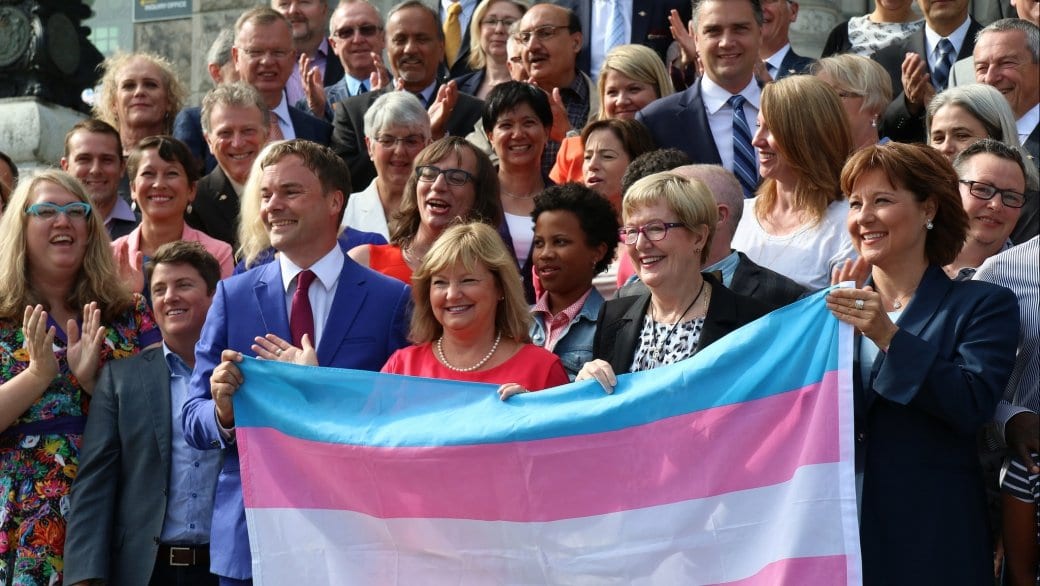Trans rights will now be officially protected in the BC Human Rights Code.
In a rare move, the BC Liberals introduced the trans bill and passed it through all three readings in a single day on July 25, 2016.
“I feel wonderful,” Trans Alliance Society chair Morgane Oger tells Daily Xtra. “I’m ecstatic.”
All that remains for the changes to become law is the formality of royal assent by the lieutenant governor.
The bill, which passed unanimously with a few abstentions, explicitly adds gender identity and expression to the list of grounds protected from discrimination under the BC Human Rights Code, which means trans people can no longer get fired or lose housing or face discrimination just for being themselves.
Oger was among members of the trans community in the BC legislature to watch the passage of Bill 27, the Human Rights Code Amendment Act, 2016.
But her joy is tinged with some cynicism.
Oger says it was the BC Liberals’ last chance to pass a trans rights law prior to the federal government doing so in advance of BC’s provincial election next May.
“They would have six months of reminders of this into the election,” says Oger, who is seeking an NDP nomination to run for MLA in Vancouver-False Creek.
“They were losing votes so they had to act,” Oger says.
Vancouver-West End NDP MLA Spencer Chandra Herbert says it was good for the parties to put aside partisan differences in the vote.
“This is about changing a law so we can help change a culture to be one that’s more inclusive, one that’s more accepting, one that embraces difference and diversity,” he told the legislature.
“We got there,” he tells Daily Xtra.
“Given it’s four words and a comma, it’s fairly easy,” he adds.
Chandra Herbert tried four times in the last fives years to add trans rights to the province’s Human Rights Code. Four times the BC Liberals refused. Until now.
While he was praised in the legislature for his work on the issue, Chandra Herbert says that praise belongs to community advocates who worked for years to see this change.
“They should have been thanking the advocates,” he says. “It was their voices I was lifting up in the House.”
He says some MLAs seemed relieved the battle is over.
“They finally got Christy Clark to stop blocking this,” he says. “Fifth time’s a charm.”
While the vote was unanimously in favour with no objections, at least one MLA sitting in the House abstained: Chilliwack-Hope Liberal MLA Laurie Throness.
A few other MLAs, including Premier Christy Clark who was in the House for question period, are not recorded as yes votes on the trans bill and may have been out of the House when the final vote was taken.
According to the July 25 Hansard record of legislative proceedings, Throness said in debate that the bill raises trans people to a unique position in law.
He called the bill unnecessary.
“In my opinion, this special recognition reflects the strong and growing political influence of the LGBTQ community,” he said, later quoting the Bible. “Transgendered people are a vulnerable group, for sure. But in a paradoxical way, they are also very powerful.”
He said the bill would cause distress for “thousands of parents, hundreds of churches and independent schools and other organizations around the province.”
Oger called Throness’ comments “transphobic garbage.”
“He has lost the plot in trying to please the community,” she says.
Chandra Herbert says Throness’ speech harkened back to the days of conspiracy theories of a “gay agenda.”

 Why you can trust Xtra
Why you can trust Xtra


